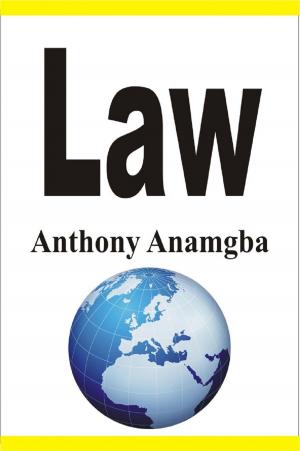| Author: | Anthony Anamgba | ISBN: | 9781370295869 |
| Publisher: | Anthony Anamgba | Publication: | March 17, 2017 |
| Imprint: | Smashwords Edition | Language: | English |
| Author: | Anthony Anamgba |
| ISBN: | 9781370295869 |
| Publisher: | Anthony Anamgba |
| Publication: | March 17, 2017 |
| Imprint: | Smashwords Edition |
| Language: | English |
Stress is an extra force used when pronouncing a particular syllable or word. A stressed syllable is relatively loud, long in duration, said clearly and distinctly, and made noticeable by the pitch of voice.
It is in this lucid manner that this book will teach you stresses. It can help you to learn how to put stresses on words and sentences only if you can strictly adhere to the several rules of stress placement it has enunciated.
It clearly explains the major types of stress. They are word stress and sentence stress. The word stress deals with how to put stress on single words. The sentence stress concentrates on how to put stress on phrases, clauses and sentences.
It analyzes the rules of stress placement. It throws light on the first rule which states that the monosyllabic words, the words that have one syllable, are not stressed.
It appraises the second rule of stress placement. For a bi-syllabic word used as both noun and verb, the stress is placed on the first syllable when used as a noun and on the second syllable when used as a verb.
It evaluates the third rule of stress placement. Most three-syllable words with the suffixes -ive, -ic, -ion, -ial, and -ian are stressed on the second syllable while counting from the end.
It identifies the fourth rule of stress placement. Most four-syllable words with the suffixes -sm, -ing, and -ly are usually stressed on the first syllable.
It highlights the fifth rule of stress placement. Most five-syllable words with the suffix -tion are stressed on the second syllable while counting from the end.
It examines the sixth rule of stress placement. Most polysyllabic words with the suffixes -fy, -like, -tude, -ism, -ship, and -gue are stressed on their first syllables.
It discusses the seventh rule of stress placement. In a noun-compound word, the stress usually falls on the first syllable of the word. In a verb-compound word, the stress usually falls on the second syllable of the word.
It explores the emphatic stress and the sentence stress. The emphatic stress is the stress of a particular word in a sentence in order to accentuate it or to contrast the word with another word. The sentences stress means applying stress to the words in a sentence.
And it contains many crucial questions designed to enable you master how to place stresses on words and sentences.
Stress is an extra force used when pronouncing a particular syllable or word. A stressed syllable is relatively loud, long in duration, said clearly and distinctly, and made noticeable by the pitch of voice.
It is in this lucid manner that this book will teach you stresses. It can help you to learn how to put stresses on words and sentences only if you can strictly adhere to the several rules of stress placement it has enunciated.
It clearly explains the major types of stress. They are word stress and sentence stress. The word stress deals with how to put stress on single words. The sentence stress concentrates on how to put stress on phrases, clauses and sentences.
It analyzes the rules of stress placement. It throws light on the first rule which states that the monosyllabic words, the words that have one syllable, are not stressed.
It appraises the second rule of stress placement. For a bi-syllabic word used as both noun and verb, the stress is placed on the first syllable when used as a noun and on the second syllable when used as a verb.
It evaluates the third rule of stress placement. Most three-syllable words with the suffixes -ive, -ic, -ion, -ial, and -ian are stressed on the second syllable while counting from the end.
It identifies the fourth rule of stress placement. Most four-syllable words with the suffixes -sm, -ing, and -ly are usually stressed on the first syllable.
It highlights the fifth rule of stress placement. Most five-syllable words with the suffix -tion are stressed on the second syllable while counting from the end.
It examines the sixth rule of stress placement. Most polysyllabic words with the suffixes -fy, -like, -tude, -ism, -ship, and -gue are stressed on their first syllables.
It discusses the seventh rule of stress placement. In a noun-compound word, the stress usually falls on the first syllable of the word. In a verb-compound word, the stress usually falls on the second syllable of the word.
It explores the emphatic stress and the sentence stress. The emphatic stress is the stress of a particular word in a sentence in order to accentuate it or to contrast the word with another word. The sentences stress means applying stress to the words in a sentence.
And it contains many crucial questions designed to enable you master how to place stresses on words and sentences.















